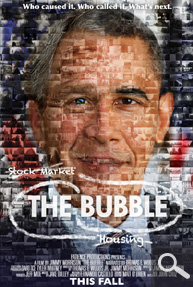
If you know the enemy and know yourself, you need not fear the result of a hundred battles. If you know yourself but not the enemy, for every victory gained you will also suffer a great defeat. If you know neither the enemy nor yourself, you will succumb in every battle. –Sun Tsz 2,500 years ago
When you come to the market, bring your investment discipline; bring your analytical powers; bring humility.–the Two Cents Philosopher
June 7, 2012 at www.nytimes.com
Accounting Backfired at MF Global
This article illustrates the importance of converting accounting information into economic reality and the pitfalls for both management and investors when ignored.
Back when I was studying accounting at Columbia University’s business school, the professor had a handy way to determine whether it made sense for a company to recognize revenue: Had it completed the hard task in its business?
GAAP — generally accepted accounting rules — were not so simple, he said, and sometimes let companies record revenue — and post profits — far too early. Companies that took advantage of such rules could well be reporting earnings they would never see.
The hard task varied from business to business, he said. For a farmer, the hard part was done when the crop was harvested. Even if it had not yet been sold, there was a ready market for corn or soybeans or whatever, and money had been earned. For a manufacturer of tourist tchotchkes, making them was the easy part. Persuading someone to buy them was the difficult part, and revenue recognition should be delayed.
Over the years, I’ve seen any number of accounting disasters, ranging from Enron to subprime mortgages, where that simple principle was ignored. Sometimes that accounting was within the limits of GAAP and sometimes it was not. In all cases, it produced profits that vanished before they were actually realized.
Now there is another example at MF Global, the brokerage firm that Jon Corzine ran into the ground.
The accounting maneuver allowed MF Global to buy bonds issued by European countries and book profits the same day. That is the rough equivalent of a farmer’s booking profits as soon as he plants the crop.
To be fair to MF Global, it did disclose what it was doing in a footnote to its financial statements. The accounting appears to have been proper under accounting rules that are now being reconsidered.
In a minute, I’ll explain exactly what the company did and how the accounting rules came to make it possible to report profits that were at best premature and at worst fictional.
But for now, consider the effect such rules had. MF Global, when Mr. Corzine took it over in 2010, was unprofitable. Here was a way to report instant profits and make the financials look better. There is no way to know whether the firm would have taken fewer risks without the foolish accounting, but perhaps it would have. In any case, regulators and investors might have seen a less rosy — and more realistic — picture in the months leading up to the firm’s failure last fall.
The transactions were laid out this week in reports from two trustees trying to unravel the MF Global mess and return as much money as possible to customers.
The fact that there are two trustees, one appointed by the Securities Investor Protection Corporation, which provides reimbursement for brokerage customers under some circumstances, and the other by the bankruptcy court judge, only begins to address the complexities of the mess made by Mr. Corzine. There are also “special administrators” in London, since many of the trades were carried out through a British subsidiary. The three sets of trustees and administrators have spent a lot of time fighting one another.
“Among the lines of business that Mr. Corzine built up to attempt to improve profitability at MF Global was the trading of a portfolio of European debt securities,” states the report by the SIPC trustee, James W. Giddens. “These trades provided paper profits booked at the time of the trades, but presented substantial liquidity risks including significant margin demands that put further stress on MF Global’s daily cash needs.”
How, you might wonder, could MF Global report profits immediately? Shouldn’t it wait for interest to be paid on the bonds, or at least for the market value of the bonds to rise?
To my old professor, the answer to that would have been yes. But that is not what the rules said.
To explain how that worked, we must venture into the world of repos. But don’t let your eyes glaze over. A repo in reality is usually just a loan. The lender gets an agreed rate of interest, and it gets possession of the collateral while the loan is outstanding. That way, if there is a default by the borrower, the lender can sell the collateral and not have to wait to be paid.
MF Global having bought a Spanish government bond, for example, would then repo it, meaning it would turn over the bond in return for a loan. MF Global would get the cash, but it retained all the rewards and risks of owning the actual security. If the bond defaulted, MF Global would suffer the loss.
Most repos are accounted for as loans. But sometimes they are accounted for as sales. One such case involves what are called “repos to maturity,” or R.T.M.’s, in which the repo does not expire until the security matures. MF Global called these transactions R.T.M.’s even though they expired two days before maturity. That was because a London clearinghouse, which was on the other side of the trades, was not willing to lend the money for that long. It wanted to be repaid before the bond reached maturity, so as to be protected from loss if the bond went into default at maturity.
Under the rule, MF Global could say it had sold the bond, not just lent it out. And with a sale, it could post a profit based on the fact that it borrowed more than it paid for the bond. Theoretically, it should have also taken a reserve for the fair value of the default risk it was taking. The details are not clear, but it appears that reserve was not very large, leaving MF Global with a profit to report.
Just now, that seems truly absurd. But the Financial Accounting Standards Board says that until MF Global failed, no one had complained about the rule. Since then, the chief accountant’s office at the Securities and Exchange Commission has voiced concern, and the board hopes to propose a new rule later this year.
I wondered how that rule came to exist. The answer, as in many cases of abused accounting rules, seems to be that FASB was trying to stop a different abuse.
That abuse came years ago, when United States Treasury securities were trading at large discounts to face value.
That was because interest rates had risen, not because anyone doubted the bonds would be repaid. Under the accounting rules, owners did not have to take losses on the bonds so long as they held onto them, no matter how low the market price was. But if they sold them, they had to take the loss.
Enter the clever strategy. The owners would do repos on the bonds, and treat them as loans. The repos would not expire until the bonds matured.
For all practical purposes the owner had sold the bonds at a loss, been paid for them and moved on to other investments, but no loss showed up on his financial statements.
The FASB ruled that a “repo to maturity” was really a sale. In the above case the owner of the bond would have to report a sale, not a borrowing, and report the loss.
The accounting board provided guidance indicating that if the repo ended very close to maturity, that amounted to the same thing. That made sense if you ignored default risks, and in those days repos were usually of very high-quality bonds with little or no chance of default.
That is the rule that MF Global was able to use, except that rather than avoiding a real loss, as in the previous case, this time it was reporting a profit that would arrive only if the countries were able to pay their debts.
As everyone knows now, people grew nervous about sovereign credit over the last couple of years. Regulators worried about the risky nature of the sovereign debt forced MF Global to maintain higher capital levels, which the report by the bankruptcy trustee indicates the firm tried to evade by shifting some of the positions to an unregulated subsidiary.
But the firm still needed more and more cash to meet margin calls as the market value of the bonds fell. In the end, it ran out of cash, and — intentionally or otherwise — seems to have misappropriated hundreds of millions of dollars from customer accounts.
It would be wrong to say bad accounting caused MF Global to fail. But it did both encourage and obscure risk-taking that ended in collapse and scandal.
Floyd Norris comments on finance and the economy at nytimes.com/economix.
 After decades of rising prices, hostile foreign suppliers and warnings that Americans will have to bicycle to work, the world faces the possibility of vast amounts of cheap, plentiful fuel. And the source for much of this new supply? The U.S.
After decades of rising prices, hostile foreign suppliers and warnings that Americans will have to bicycle to work, the world faces the possibility of vast amounts of cheap, plentiful fuel. And the source for much of this new supply? The U.S.





